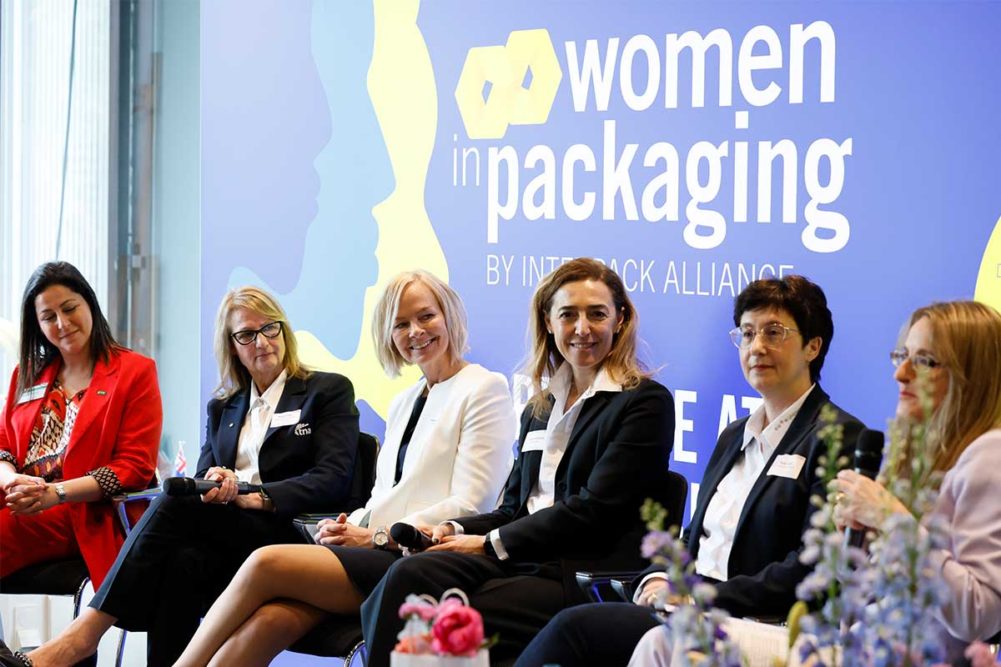Diversity and inclusion are more than just ensuring you have met a quota of women or people of color at your organization. They are about the value different perspectives bring to your company. That’s what stood out to me as I talked to Nerida Kelton, executive director of the Australian Institute of Packaging and vice president of sustainability and save food for the World Packaging Association, and Nadia Taylor, director and co-founder of TNA Solutions, at interpack 2023 last month in Düsseldorf, Germany.
Ms. Kelton moderated a panel of women leaders in the packaging industry — Ms. Taylor included — on the challenges facing women in the industry today, but both were willing to talk with me one-on-one about their experiences and perspective. It would be easy to assume that any conversation about women in a particular industry would focus solely on making sure there are enough women at the table. But in both of my conversations with Ms. Kelton and Ms. Taylor, it was clear that including women for women’s sake wasn’t the goal. The benefit comes when an organization has a diverse team at all levels, including executive leadership, because diversity of people breeds diversity of thought, which is a boon to any organization.
“We all bring different skill sets to the table,” Ms. Kelton said. “You can’t have a slant on men any more than you can on women because we all bring different skill sets and see things so differently. An industrial designer will see things so differently than a food scientist than a chemist than a sustainability manager, so equity isn’t just gender-based.”
Ms. Taylor mentioned multiple times how opportunities should always be based on merit. However, women are often overlooked in male-dominated industries, even when they are qualified and deserving. This requires companies to be more intentional about their hiring practices and leaders to look past their unconscious biases. Male-dominated industries must work harder to position themselves as viable career options for women.
“I think the biggest challenge and also the biggest opportunity lies in the manufacturing aspect of the industry,” Ms. Taylor pointed out. “This area has historically been male-dominated, and there are stereotypes that are hard to break away from that I believe deter a lot of women from applying for what are highly fulfilling positions. In general, the packaging industry has not been showcased or promoted as a good career opportunity, and from the perspective of encouraging more women to apply, it is key to promote the fact that women leaders and role models exist and are continuing to break down those barriers.”
Ms. Kelton also noted that the industry has gotten more diverse, especially in developed nations, but there are still opportunities for more women in leadership roles and the industry to position itself as a place for women to build their careers.
“If we can show women around the world that there are women in this industry doing good work, that they are leaders, they are CEOs, then I think the younger people who are just starting will have the confidence to believe there is a long-term career path for them,” she said. “And that’s changed a lot since I’ve been in the industry.”





